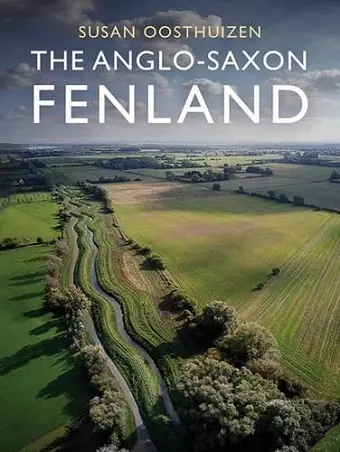The Anglo-Saxon Fenland
Format:Paperback
Publisher:Windgather Press
Published:30th Jun '17
Should be back in stock very soon

Archaeologies and histories of the fens of eastern England, continue to suggest, explicitly or by implication, that the early medieval fenland was dominated by the activities of north-west European colonists in a largely empty landscape. Using existing and new evidence and arguments, this new interdisciplinary history of the Anglo-Saxon fenland offers another interpretation. The fen islands and the silt fens show a degree of occupation unexpected a few decades ago. Dense Romano-British settlement appears to have been followed by consistent early medieval occupation on every island in the peat fens and across the silt fens, despite the impact of climatic change. The inhabitants of the region were organised within territorial groups in a complicated, almost certainly dynamic, hierarchy of subordinate and dominant polities, principalities and kingdoms. Their prosperous livelihoods were based on careful collective control, exploitation and management of the vast natural water-meadows on which their herds of cattle grazed. This was a society whose origins could be found in prehistoric Britain, and which had evolved through the period of Roman control and into the post-imperial decades and centuries that followed. The rich and complex history of the development of the region shows, it is argued, a traditional social order evolving, adapting and innovating in response to changing times.
This book is essential reading for anyone interested in the East Anglian Fenland in the early medieval period… This is probably one of the most important books to appear in recent years on the East Anglian Fenland, but the arguments presented here may also hold relevance to an understanding of the cultural background of a much wider area. * The Antiquaries Journal *
A comparatively slim book, but in any roll call of regional histories, also comparatively significant. * Current Archaeology *
The book has much to recommend it as a convenient summary of much of the evidence and a detailed description of how land-use and water management worked in the fens. * Medieval Archaeology *
...a well researched and nicely presented book, which raises some interesting hypotheses about landscape continuities in this enigmatic region froma longue duree perspective. * Archaeological Journal *
…offers a fresh perspective on a relatively poorly defined period, usefully questioning established views, long taken for granted, and generating a new set of carefully argued hypotheses that should focus attention for a new generation of researchers. * Medieval Settlement Research Group *
…full of provoking ideas. * Landscape History *
…it should encourage early medieval historians interested in the process of forming and preserving identity to pay attention to customs which tacitly state: ‘we are the people who have rights to pasture here’. * Early Medieval Europe *
Ultimately, Susan Oosthuizen is to be congratulated on producing a thought-provoking volume which should be considered essential reading for anyone wanting to understand the settlement and exploitation of the East Anglian landscape during the Anglo-Saxon period. * Norfolk Archaeology *
This important and thoroughly researched book makes a very good case for long-term continuity in the specialised management needed for the Fenland. * British Archaeology *
ISBN: 9781911188087
Dimensions: unknown
Weight: unknown
160 pages